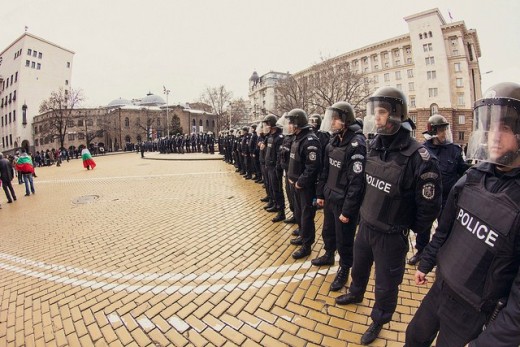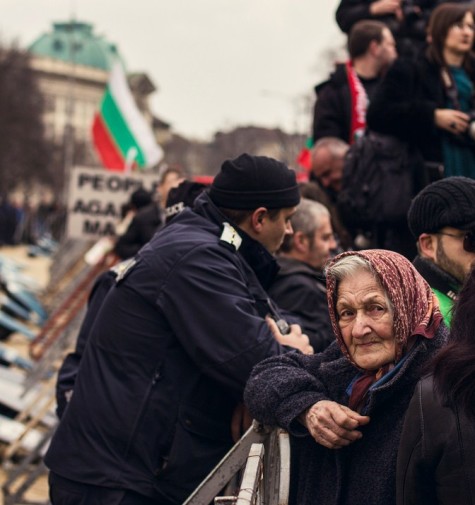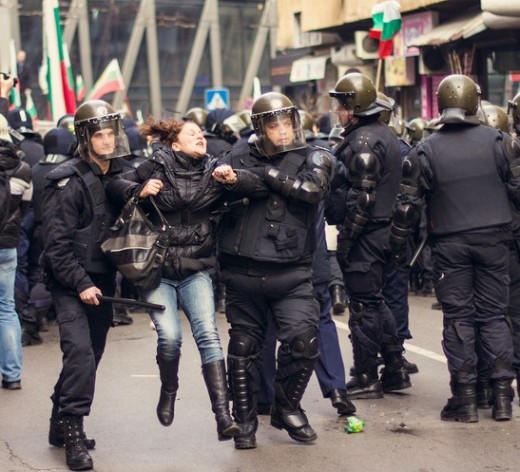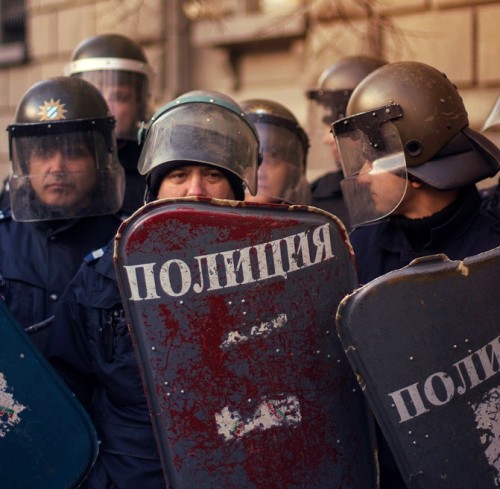Will Revolt Spread from Bulgaria Throughout Europe?
Last week Bulgaria’s Prime Minister, Boiko Borisov, resigned after several weeks of street protests against austerity, writes Gilbert Mercier
Borisov announced his resignation in front of Bulgaria’s parliament after a night of violent clashes between protesters and police. More than 30 people had to be treated at hospitals due to police brutality. Ironically, Borisov justified his resignation by his own police force’s brutality. “I will not participate in a government under which police are beating people. Every drop of blood is a shame for us,” said Borisov before leaving the parliament’s building.
Bulgarians had been holding massive protests against tough austerity measures and a steep rise in energy prices which most people say that they can no longer afford. Bulgaria is Europe’s poorest country. The power companies are private and some are foreign-owned. In recent days, Borisov had made the promise to renationalize the energy companies, but this came too late to calm people and save his government. The Bulgarian uprising is mainly composed of young people fed up with the system; it was not organized by unions or traditional political parties.
The economic policies of Borisov, very much in line with his technocratic colleagues of Western Europe, were designed to cut Bulgaria’s budget deficit to keep the currency aligned with the Euro. Just like his European colleagues, Borisov’s financial and economic austerity agenda were dictated by European central and private banks, not the welfare of Bulgaria’s people. Bulgaria is not part of the Euro-zone, but Borisov’s government had planned to join it eventually. All this could be put into question by the popular will of Bulgarians. General elections were scheduled for July 2013, but it is likely that, to avoid a power vacuum — Borisov has ruled out providing an interim government — the elections will be moved up as early as April.
Greece: Will the general strike be the start of a popular uprising?
It seems that the events in Bulgaria are already inspiring people in Greece, which was paralyzed last week by a general strike. Massive anti-austerity protests took place, joining workers from both private and public sectors, and farmers. Once again, the Greeks are rallying against austerity measures which have as primary tools spending cuts and tax hikes. The leftist party Syriza, which is heading the opposition, wants to use today’s strike as a start to rally people against the conservative government of bank technocrat Prime Minister Antonis Samaras. The ultimate goal of Syriza is to topple Samaras’s government, which is aligned with European banks.
“We are fighting for collective bargaining agreements, for measures to be taken against unemployment, and to ensure our democratic and working rights,” said a representative of the GSEE, the largest private sector union. A Syriza party press release took the significance of today’s action a lot further. “The general strike is aimed at bringing down the government and at annulling the austerity agreements and measures. The relentless policy of the Samaras government must be met with a popular uprising. The general strike must be the start of this uprising.”
Will Bulgaria’s revolution have a European domino effect?
The events in Sofia , and the radicalization of the rhetoric from Syriza in Greece could be the indication that we are on our way to a wave of powerful protests across Europe: a European spring. People across the continent are fed up with their respective governments’ implementations of policies of austerity favored by bankers. All over Europe, despite pseudo-political labels like the French “socialist” Hollande, technocrats in the back pockets of global finance are trying to impose measures that would more or less enslave people. But the Bulgarians in Sofia bring some hope by proving one thing: people with determination can topple a government, any government, no matter how brutal. What can be achieved in Bulgaria can be achieved in other parts of Europe that are being crippled by the same austerity punishment. It can be done in Greece, Spain, Portugal and Italy where the problems are the same.
All photographs by George Chelebiev
This article was first published on News Junkie Post and is reprinted here with permission
1 comment
One response to “Will Revolt Spread from Bulgaria Throughout Europe?”
Left Unity is active in movements and campaigns across the left, working to create an alternative to the main political parties.
About Left Unity
Read our manifesto
Left Unity is a member of the European Left Party. 
Read the European Left Manifesto
ACTIVIST CALENDAR
Events and protests from around the movement, and local Left Unity meetings.

Saturday 10th January: No to Trump’s war on Venezuela
Protest outside Downing Street from 1 to 3pm.
More events »
GET UPDATES
Sign up to the Left Unity email newsletter.
CAMPAIGNING MATERIALS
Get the latest Left Unity resources.







What was achieved in Bulgaria can be achieved throughout Europe. It will not have gone unnoticed how bills have rocketed; electricity, gas, water, other utilities, car-insurance (up 30%), in fact everything is rocketing. In the meantime wages and salaries have stagnated or in some cases been reduced. The time has come to wake up. They might have all the money. But there are more of us than them. People-power should never be underestimated.